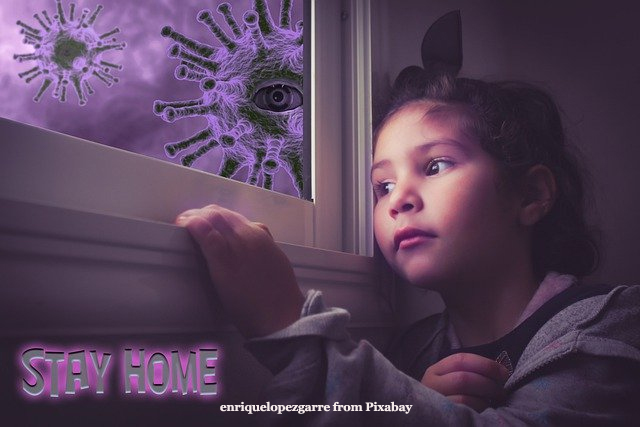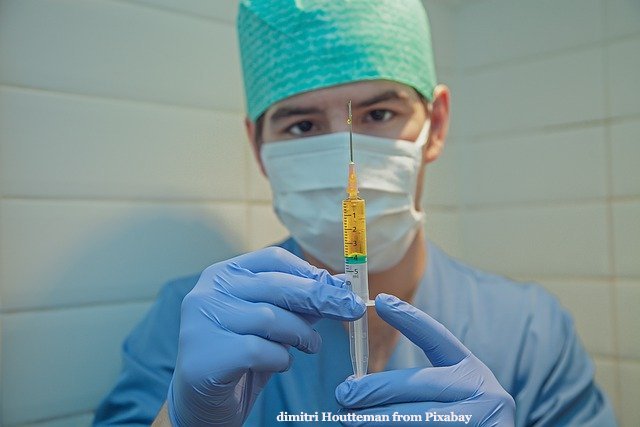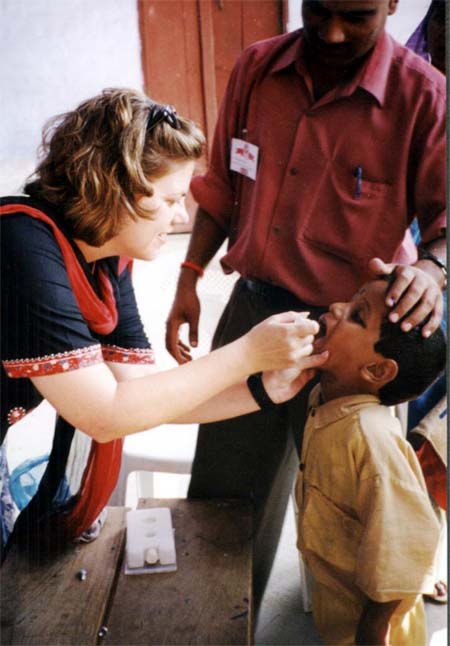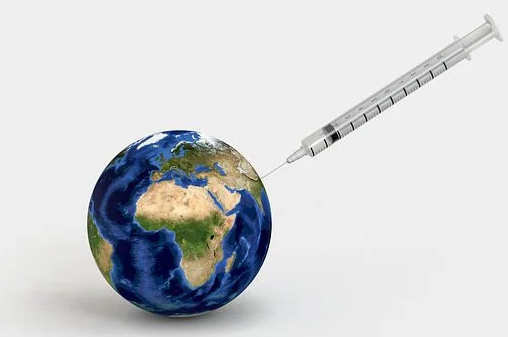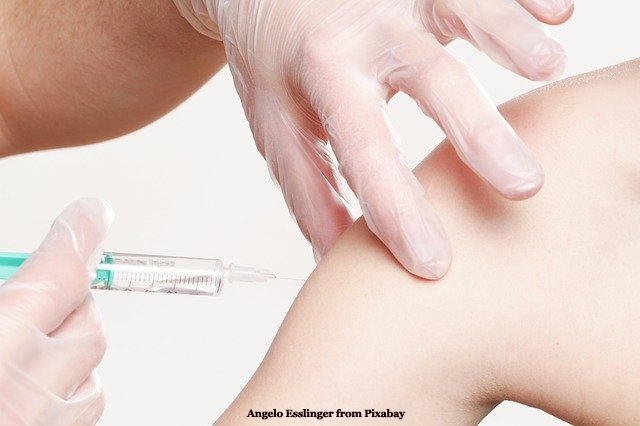CHILDREN and COVID-19 Vaccines
Children, in general, seem to have much less severe cases of COVID-19 (data as of April 2022). If children have relatively harmless cases of COVID-19 and recover with no consequences, the argument arises of why should children be vaccinated? Why not simply let them catch COVID-19, get sick, and recover, much like their parents or grandparents did with measles, mumps, and chickenpox before vaccines were available for those diseases?
This is not a new argument. Here are some facts why it is not a legitimate one…
- Sick children can infect parents and grandparents who are at a much higher risk. It has been shown that children are better at spreading the virus.
- Before the chicken pox vaccine was introduced, children were less likely to be hospitalized than adults. Most recovered with no complications, but some did not. As a matter of fact, there were more than 1500 hospitalizations every year for chicken pox-related complications prior to the introduction of the chickenpox vaccine. With the vaccination, hospitalization rates for chickenpox declined by 90 percent in one to four-year old children!
- Some people compare COVID-19 to the flu and argue that more children die of the flu than the pandemic. But this is just not true. What is true is that the mortality rate in children of both the flu and COVID-19 is low, but the lives of more than 1200 young children have been lost in the US from COVID-19 compared to six deaths from the flu. 1200 young children losing their lives to a disease that can be avoided or eased with a vaccine cannot be easily dismissed.
- It is true that serious complications from COVID-19 can happen in children. Some will need to be hospitalized, some will need to be put on ventilators, and some will die. Fortunately, the actual percentage of children that will be seriously harmed or die is very small.
- Some parents feel the low-risk percentage is not significant enough and prefer to wait and take their chances. While the risk is indeed low, much like chickenpox, vaccination can make that risk even lower.
- We are still in the pandemic, even though (at this time) the case numbers have been going down significantly in the US. However, the latest variant was very transmittable and the rest of the world, especially poor countries, are still working to control the disease. It is possible that new variants could become a reality. COVID-19 is not over yet and may possibly be with us in some form or another for a long time. This could lead to a lot of very sick children if they are not protected by a vaccine.
WHY DO CHILDREN FARE BETTER THAN ADULTS WITH COVID-19?
The answer to the above question lies in an understanding of our Innate and Adaptive Immune Systems, as well as the presence of Cytokines.
THE INNATE IMMUNE SYSTEM
Our immune systems have 2 lines of defense against disease. The initial response to an infection triggers the innate immune system. The innate immune response includes mucus in the nose and throat (that helps trap harmful microbes) and proteins and cells that help the body to mount an initial attack.
Children’s immune systems have higher levels of some innate molecules and higher levels of innate responses to infections when compared with adults. Therefore, the innate immune systems seem to be more effective in children than in adults when dealing with COVID-19.
THE ADAPTIVE IMMUNE SYSTEM
The other part of the immune system is the adaptive immune system which develops more slowly and mounts a more specific defense. Adaptive immunity includes T and B cells that take longer to respond but retain memory of past invaders.
The strong innate response that children have makes them less reliant on the adaptive immune system because they have had less exposure to other coronaviruses. Actually, when children encounter the SARS-CoV-2 virus their innate immune system immediately mobilizes and attacks the essential parts of the virus.
The adaptive immune systems (memory T and B cells) of older persons targets parts of the SARS-CoV-2 virus they have encountered in other coronaviruses and those parts don’t seem to be as important to stopping infection.
CYTOKINES
Cytokines are small proteins produced by certain cells in the body that serve as molecular messengers between cells. Cytokines that are part of the immune system regulate the body’s response to disease and infection. When they are released, they signal the immune system to do its job. Researchers found that two cytokines were important to the innate immune response and were more prevalent in the blood of younger people compared with older people.
IF CHILDREN HAVE RESISTANCE
TO COVID-19,
SHOULD THEY STILL GET VACCINATED?
At this point in time (April 2022), more than ¾ of eligible adults but only 40% of eligible children are fully vaccinated. Some parents question possible side effects of the vaccine and decide to wait for more data. As noted above others consider the risks to their children to be very low and opt out of vaccines. Some even believe that all this COVID-19 talk is simply fear-mongering!
Nonetheless, the answer to whether or not children should be vaccinated is a resounding yes! Here are some reasons why…
- Researchers have found no evidence that COVID-19 vaccines pose any serious safety concerns. Trials conducted by the CDC with thousands of children found the most common side effects of the vaccine were mild and didn’t have any lasting impact.
- Recent research suggests that children’s risk of getting infected with COVID-19 is similar to that of adults.
- Children appear better at spreading the virus than early studies suggested.
- Some children do require hospitalization when infected.
- Some children have symptoms long after they have cleared the virus.
- A child’s innate immune system is not 100% protective. There is also a risk for children for multisystem inflammatory syndrome (MIS-C), a rare condition that can occur in children several weeks after a COVID-19 infection and can lead to organ damage or even death.
- For children under age 5, a vaccine is not yet available. Approval of Pfizer’s vaccine for children under 5 was delayed because the initial 2-dose series wasn’t working well against the Omicron variant during testing. Research and testing is continuing and an effective vaccine should become available for children under 5 in the near future.
Thus, even though children have stronger immune protection against COVID-19 than the rest of the population, vaccines are important to protect vulnerable children and to control the spread of infections. The benefits have been shown to far outweigh any possible risks.
Please note: Some of the scientific information found in this article has been presented with permission from the McGill University Office for Science and Society.
Top of Children and COVID-19 Vaccines
"The Cleanest Clean You've Ever Seen."
by
ABC Oriental Rug & Carpet Cleaning Co.
130 Cecil Malone Drive Ithaca, NY 14850
607-272-1566


